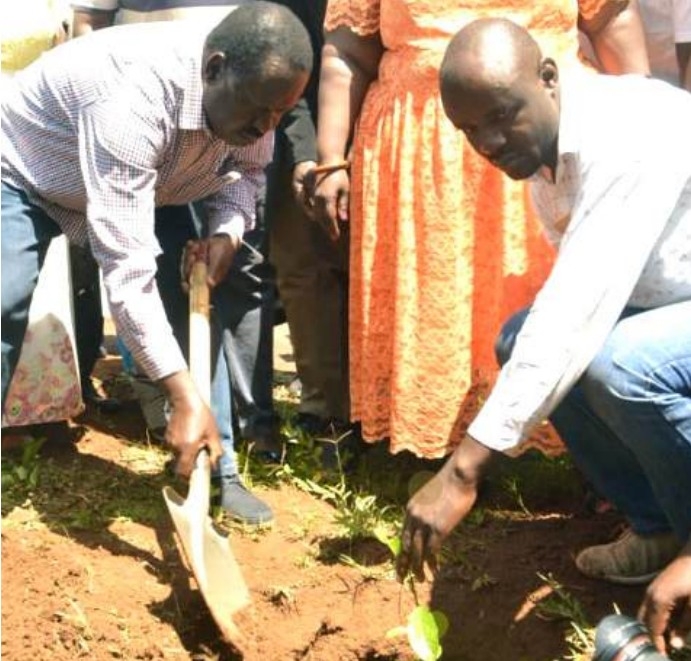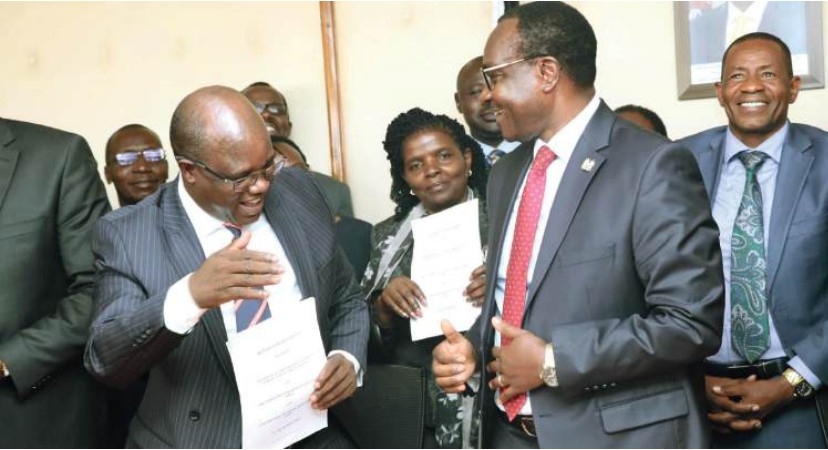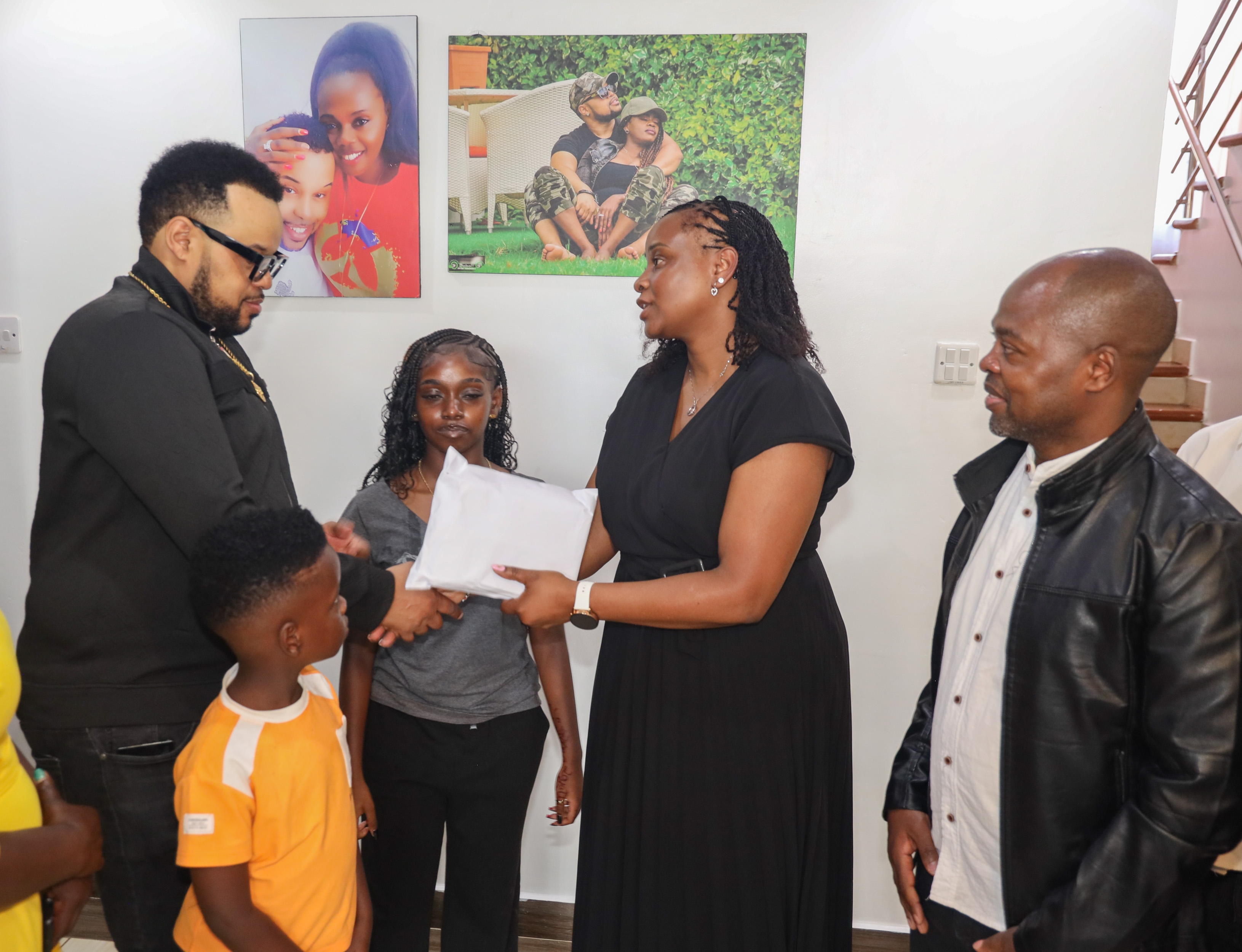 Image of Amos, a waste picker from Nakuru. The Kenya National Waste Pickers Welfare Association estimates about 46,000 waste pickers operate across the country.
Image of Amos, a waste picker from Nakuru. The Kenya National Waste Pickers Welfare Association estimates about 46,000 waste pickers operate across the country.
The project is part of the Responsible Sourcing Initiative, a global program led by The Circulate Initiative, a non-profit organization working to tackle ocean plastic pollution in emerging markets. Backed by funding from The Coca-Cola Foundation and IKEA Foundation, the initiative has now expanded into Africa, beginning with Kenya and with Ethiopia expected to follow in 2026.
“Our launch in Africa is a significant milestone for the Responsible Sourcing Initiative,” said Annerieke Douma, Senior Director of Programs at The Circulate Initiative. “As the first regional approach, it allows us to take learnings from our work to date to the broader ecosystem in Africa, addressing human rights issues for informal workers across the continent.”
Kenya generates nearly 983,000 tonnes of plastic waste each year, but only 27 per cent of it is collected, and a mere eight per cent is recycled, according to the International Union for Conservation of Nature (IUCN). The rest ends up in landfills or illegal dumpsites.
The sector relies heavily on informal waste workers, an invisible but crucial workforce that picks and sorts plastic from dumpsites and households. The Kenya National Waste Pickers Welfare Association estimates about 46,000 waste pickers operate across the country, yet many work in hazardous conditions with little recognition or protection.
Douma emphasized the importance of tackling systemic challenges: “The baseline assessment in Kenya highlighted the need for a systems-level approach to responsible sourcing, with waste pickers still facing routine discrimination and lack formal recognition. Partnering with the Kenya National Waste Pickers Welfare Association and other groups will be key to harnessing their collective voice and ensuring all solutions are shaped by those on the ground and directly impacted.”
The project is being implemented in partnership with Mr. Green Africa, a Nairobi-based plastics recycler that already works closely with informal waste collectors. The company integrates them into its operations, aiming to increase transparency, improve incomes, and boost safety standards.
Keiran Smith, Co-Founder and CEO of Mr. Green Africa, said: “Our technology-driven plastics collection model is designed to integrate informal waste workers into a transparent, inclusive value chain. By joining the Responsible Sourcing Initiative, we can expand our network and increase the supply of responsibly sourced recycled plastic in Africa, whilst improving livelihoods and conditions for these workers.”
The initiative uses a new tool called the Harmonized Responsible Sourcing Framework for Recycled Plastics, launched globally in 2024. It is the first framework of its kind to offer detailed, actionable guidelines to implement responsible sourcing practices in the recycling value chain.
Already, a baseline assessment has been conducted on Mr. Green Africa’s operations. The report praised several best practices but also flagged key risk areas, including “instances of low pay, unsafe working conditions, and poor access to social and financial services for some informal waste sector workers.”
The assessment also found “most waste collectors demonstrated a strong awareness of unions or associations and a willingness to engage with them”—a positive signal for future collaboration.
The initiative comes at a time when stakeholders globally are grappling with how to make recycling both effective and ethical.
Carlos Pagoaga, President of The Coca-Cola Foundation, said: “Informal waste workers are critical to our efforts to build a more sustainable future and help reduce packaging waste. We are proud to support the Responsible Sourcing Initiative, which demonstrates the power of collective action at scale that aims to create real impact and to ensure the people behind our recycling efforts are recognized and protected.”
The work in Kenya will inform the creation of a broader Responsible Sourcing Network Africa (RSNA), which aims to support similar projects across Ethiopia, Egypt, Nigeria, Algeria, Djibouti, and Morocco.
According to The Circulate Initiative, RSNA will “convene brands, recycling companies, informal waste worker associations and subject matter experts... to provide training in implementing the Harmonized Framework and initiatives to support and inform inclusive policy making at national level.”
Kenya is now the fourth country in the world to implement the Responsible Sourcing Initiative, after India, Indonesia, and Viet Nam.
Globally, the initiative aims to improve the livelihoods of 50,000 informal waste workers; secure the commitment of more than 50 brands, investors, and recyclers; and eliver 100,000 tonnes of responsibly sourced recycled plastic by 2026
As Douma put it, “The Kenyan project is the first step towards scaling responsible sourcing practices across Africa aimed at protecting workers who are at the frontlines of the fight against plastic pollution.”
















![[PHOTOS] How ODM@20 dinner went down](/_next/image?url=https%3A%2F%2Fcdn.radioafrica.digital%2Fimage%2F2025%2F11%2F99d04439-7d94-4ec5-8e18-899441a55b21.jpg&w=3840&q=100)
